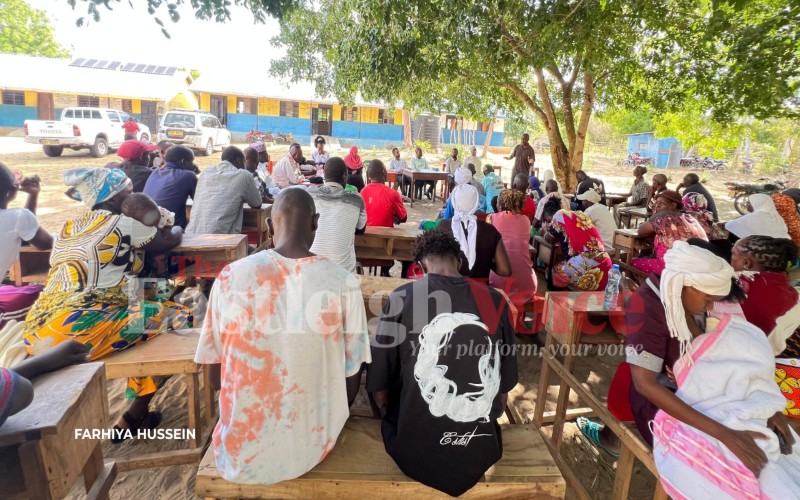New social protection Bill proposes stipends for Kenyans hit by job losses

The Social Protection Bill, 2025, aims to expand the existing social safety net, which currently covers vulnerable groups such as the elderly, persons with disabilities and orphans.
In a bid to cushion workers affected by economic disruptions, the government has proposed a new Bill that will provide a monthly stipend to those who lose their jobs due to various shocks, including pandemics, recessions or environmental disturbances.
The Social Protection Bill, 2025, aims to expand the existing social safety net, which currently covers vulnerable groups such as the elderly, persons with disabilities and orphans.
More To Read
- High-rise living in Nairobi’s Pipeline estate is stressful: How men and women cope
- Africa’s share of global extreme poverty rose by 30 per cent in 10 years - World Bank
- Kenya’s economy can only absorb 250,000 graduates annually, Labour PS tells Senate
- Shrinking opportunities, growing skills gap: What youths say they need to thrive
- New Bill proposes 80 per cent Kenyan workforce in foreign firms
- Study finds Kenya’s unpaid household labour worth Sh2.5 trillion annually
If passed, this Bill will offer much-needed financial relief to individuals who find themselves without work following unexpected economic or environmental crises.
The proposal, which was introduced to the National Assembly by the Majority Leader Kimani Ichung’wah, envisions a state-backed stipend to help affected workers.
“The principal object of the Bill is to reduce poverty and vulnerability and improve the well-being of people by providing assistance, services, and programmes that build human capital and cushion people against risks and contingencies throughout their cycles,” Ichung’wah said in the Bill’s explainer.
The move comes after a period of severe economic shocks that have left thousands jobless, most notably the Covid-19 pandemic, which caused the loss of nearly two million jobs.
The monthly stipend, similar to that provided to vulnerable groups, will offer much-needed financial support to those facing joblessness during periods of mass layoffs.
The plan marks a shift from an earlier proposal by the previous administration to create an unemployment insurance fund (UIF) where both employers and workers would contribute a percentage of their salaries to create a reserve fund for job loss relief.
National budget support
However, the UIF was quietly abandoned, and the current government seeks to provide direct support from the national budget.
Kenya’s social welfare spending is already substantial, with the country allocating approximately Sh31.3 billion to social protection and affirmative action programmes in the financial year ending June.
The proposed law seeks to expand this initiative with the creation of the National Board for Social Protection to manage the beneficiaries and monitor their status through national registries.
This board will be responsible for ensuring that eligible individuals receive timely support, either in the form of cash transfers or other types of aid.
Besides cash transfers, the Bill proposes additional forms of assistance, such as social care services.
These will include rehabilitation services, psychosocial support, and respite care services aimed at helping individuals navigate the challenges that accompany job loss.
Enhance well-being
Other programmes, such as feeding programmes and home-based care, are also part of the proposal. They are designed to enhance the well-being of affected individuals and families.
With many countries having similar systems in place, such as Australia’s non-contributory unemployment benefits funded through general taxation, Kenya is now following suit by providing direct state-funded support to individuals who lose their jobs.
This model contrasts with the South African unemployment insurance scheme, which involves contributions from both employees and employers.
The success of the programme, if passed, will depend on how effectively the government can manage the disbursement of funds and ensure that support reaches those in need.
As the country continues to recover from the aftereffects of the Covid-19 pandemic and other economic challenges, the Social Protection Bill, 2025, could serve as a lifeline for many Kenyans who are struggling to regain their financial stability if it becomes law.
Top Stories Today










































